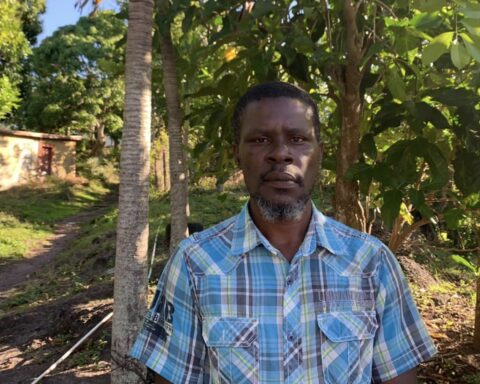British Columbia is ramping up its efforts to attract foreign trained health care workers and early childhood educators (ECEs) to address the critical shortage of skilled workers that is impacting the province’s care economy.
The government has announced that it will revamp the B.C. Provincial Nominee Program (PNP) to prioritize health care workers and ECEs in the application process and increase the number of people nominated in these occupations for permanent residence.
The PNP enables B.C. to directly select qualified, prospective economic immigrants — workers and entrepreneurs who contribute to the labour market in the province — and nominate them and their families for permanent residency. The program constitutes about one-third of all B.C. economic immigrants.
“By placing a greater focus on skilled workers in the care economy, we’re helping attract talent from around the world committed to delivering the essential services we all rely on,” Nathan Cullen, Minister of Municipal Affairs, said in a statement.
The changes also immediately provide a pathway to permanent residence for people already living in B.C. and working in these sectors.
Meeting growing demand in health care
According to B.C. government data, the Omicron wave of COVID-19 infections has exacerbated the problem, with more than 11 per cent of the province’s 188,000 health care workers calling in sick in January. The sick workers included many of B.C.’s more than 14,000 doctors and nearly 63,000 nurses.
In terms of seniors’ care, employment is forecasted to increase by 4.2 per cent annually and create 36,200 jobs over the next 10 years. B.C. will need close to 3,000 health care assistants over the next five years to meet growing demand, according to the BC Care Providers Association.
“Health-care (sic) assistants who support seniors in long-term care, assisted living and in their homes are among the most in-demand occupations in British Columbia, both today and for years to come,” Terry Lake, the association’s CEO, said in that same statement.
“These important changes to the Provincial Nominee Program will help to meet the growing needs of the care economy, which in turn will benefit B.C. seniors and those who care for them.”
Katrina Chen, Minister of State for Child Care, said the province needs about 10,000 Early Childhood Educators to join the profession over the next 10 years.
“The PNP program will help us address the ECE staff shortage throughout B.C. by helping us recruit more ECEs. We are also raising wages, expanding education, and training, and offering bursaries for people who want to enter this rewarding and in-demand career,” she said.
The priority access care economy occupations currently make up about 3 per cent, or less than 200 nominees, annually. With more than 6,700 nominations available, there is room to increase the number of nominees in this category, driven largely by employer demand, the B.C. government said.
More than 85 per cent of B.C. PNP nominees stay in B.C. after gaining permanent residency. In 2021, B.C. had an allocation of 6,750 nominations, and it is expected to reach, or exceed that level, in 2022.
A multiple-award winning journalist, Fabian Dawson is an internationally acclaimed author, filmmaker and media expert. His work over the last four decades spans the globe and he also serves as a consultant/strategic advisor to a variety of international companies. As deputy editor-in-chief of The Province, part of the Postmedia chain, Dawson led initiatives within a special publications group to provide directed content for a variety of organisations. He was named the 2019 recipient of the Bruce Hutchison Lifetime Achievement Award at Jack Webster Awards. Dawson has been invited by the governments of India, Malaysia, Taiwan, China, Hong Kong and the United States to act as a media observer/advisor on a variety of Asian-Canada issues. Dawson, now operates FD Media, which specializes in harnessing editorial assets to revenue generating opportunities.





